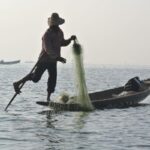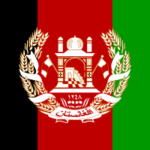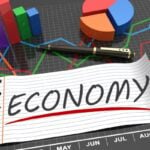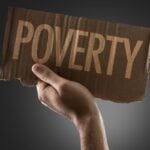The Accelerator Program 2.0 is a World Bank initiative aimed at supporting governments in low- and middle-income countries to strengthen foundational learning and reduce learning poverty. The program focuses on improving interactions between teachers, students, and learning content—the instructional core—through technical assistance that enhances early-grade teaching and learning. Its overarching goal is to demonstrate that… [Read More]
World Bank
Inat’s Journey from Lost Hope to Future Water Supply Engineer
Tanzanian student Inat Mzee Saleh faced a major setback in her academic journey when a fire destroyed her high school just weeks before her final exams. The tragedy left her without essential study materials, and her A-level results fell short of the requirements to pursue a medical degree. Heartbroken, she enrolled in a basic teaching… [Read More]
Stone by Stone: Strengthening Safety for Barbados’ Fishing Communities
In July 2024, Hurricane Beryl, a powerful Category 4 storm, caused over B$190 million in damages in Barbados, severely impacting coastal sectors, particularly the fishing industry. Approximately 90 percent of the island’s fishing fleet was destroyed or damaged, along with key infrastructure, including the Bridgetown Port and the Fisheries Marina. The storm’s surge displaced the… [Read More]
Afghanistan Faces ‘Perfect Storm’ of Crises, UN Issues Urgent Warning
Afghanistan is facing a “perfect storm” of overlapping crises, according to the UN’s outgoing envoy, Roza Otunbayeva, who addressed the Security Council on Wednesday. While armed conflict has declined since the Taliban takeover in 2021, the humanitarian, economic, and human rights situations have deteriorated sharply. Otunbayeva warned that decisions driven by ideology rather than pragmatism… [Read More]
Central African Republic to Launch National Guarantee Fund Supporting SMEs
The Central African Republic (CAR) has announced plans to establish a new national guarantee fund to improve small and medium-sized enterprises’ (SMEs) access to financing. The initiative was revealed by Minister of Economy Richard Filakota during a roundtable on the National Development Plan (PND-RCA 2024–2028) in Casablanca, Morocco, on September 15, 2025. The fund is… [Read More]
World Bank Approves Financing to Boost Public Expenditure Efficiency and Transparency in Guatemala
The World Bank’s Executive Board has approved the project Smart Public Finance: Data-Driven Public Expenditure Management for Greater Efficiency to support Guatemala’s financial modernization. The initiative is designed to strengthen transparency, improve the efficiency of public spending, modernize financial systems, and ultimately enhance access and quality of services for Guatemalan citizens. The project represents a… [Read More]
Bangladesh Faces Mounting Health and Economic Risks from Rising Temperatures: World Bank Report
Bangladesh is facing growing health and economic risks due to rising temperatures, according to a new World Bank report. The study, titled “An Unsustainable Life: The Impact of Heat on Health and the Economy of Bangladesh,” analyzed national temperature and humidity trends from 1976 to 2023 and drew on a large 2024 household survey of… [Read More]
African Development Bank to Host Africa Natural Capital Accounting Community of Practice Secretariat
The African Development Bank Group has announced that it will host the Secretariat of the Africa Natural Capital Accounting Community of Practice (Africa NCA-CoP). This move strengthens the Bank’s leadership in integrating natural capital into climate-resilient development strategies across Africa. The Secretariat will be based at the Bank’s headquarters in Abidjan, where it will oversee… [Read More]
Kessner Capital Launches Africa’s First Private Credit Fund to Support SME Financing
Kessner Capital Management has launched its first private credit fund focused on Africa, aiming to provide growth capital to small and mid-sized businesses across the continent. This fund is positioned not just as a lending vehicle but as a long-term partner for businesses, emphasizing governance, transparency, and sustainable impact. The co-founders, Bruno-Maurice Monny and Benny… [Read More]
Scaling Water Reuse: Unlocking Municipal and Industrial Efficiency
The World Bank Group has released its flagship report, “Scaling Water Reuse: A Tipping Point for Municipal and Industrial Use,” emphasizing the urgent need to invest in water treatment and reuse. The report highlights how treated water can provide fit-for-purpose supply for both municipal and industrial applications, unlocking a sustainable and valuable resource that remains… [Read More]
Guatemala Secures World Bank Funding to Boost Public Spending Efficiency and Transparency
The World Bank’s Executive Board has approved a US$50 million project, Smart Public Finance: Data-Driven Public Expenditure Management for Greater Efficiency, to modernize Guatemala’s public financial systems. The initiative aims to improve transparency, strengthen decision-making, and enhance the efficiency of public spending, ultimately improving access to and quality of services for Guatemalan citizens. The project… [Read More]
India Leads Global Decline in Child Poverty, Millions Still at Risk
Over the past decade, South Asia has achieved significant progress in reducing extreme child poverty, yet broader economic vulnerability remains widespread. According to a joint World Bank and UNICEF report titled “Ten Years of Progress and Challenges: Insights into Global Child Poverty,” while extreme child poverty in the region fell from around 25 percent in… [Read More]
Global Child Poverty: Ten Years of Progress and Persistent Challenges
Over the past decade, there has been slow but steady progress in reducing extreme child poverty worldwide. Despite this, children remain disproportionately affected, representing over half of the global population living on less than $3.00 per day, even though they account for only 30 percent of the total population. A new joint analysis by the… [Read More]
IFC Anchors $75M Investment in CFE Fibra E to Boost Mexico’s Electric Infrastructure
The International Finance Corporation (IFC), part of the World Bank Group, has announced a US$75 million investment in the inaugural bond issuance of CFE Fibra E, a financial trust supported by Mexico’s Federal Electricity Commission (CFE). This initiative aims to mobilize private capital to strengthen and expand the country’s electricity transmission infrastructure. Structured under the… [Read More]
IFC and Sicredi Boost Financing for Women Entrepreneurs in Brazil’s Legal Amazon
The International Finance Corporation (IFC), part of the World Bank Group, is investing up to $250 million in Sicredi, a nationwide cooperative financial institution in Brazil, to expand access to finance for micro and small enterprises (MSEs), with a particular focus on women-led businesses and underserved communities in the Legal Amazon. This financing package includes… [Read More]
IFC Teams Up with JBM Group and GreenCell Mobility to Boost Electric Bus Adoption in India
The International Finance Corporation (IFC) is investing $137 million to advance electric public transport in India, providing $100 million to JBM ECOLIFE (JBM), a leading e-bus manufacturer and operator, and $37 million in mezzanine capital to GreenCell Mobility, India’s largest OEM-agnostic e-bus operator. These investments aim to deploy 4,000 e-buses and charging stations across 39… [Read More]
IFC Celebrates 20 Years in Iraq, Unveils $1 Billion in New Investments for Development
The International Finance Corporation (IFC), a member of the World Bank Group, held an IFC Partnerships Day in Baghdad to celebrate 20 years of impact in Iraq and to announce $1 billion in new investments across energy, infrastructure, agribusiness, and finance. The event, held under the patronage of Prime Minister Mohammed Shia’ al-Sudani, underscored IFC’s… [Read More]
Haiti Advances Landscape Management to Boost Food Security
Agriculture is central to rural livelihoods in Haiti, providing income for most families and employing two-thirds of the rural population. Yet the sector continues to face serious challenges that deepen rural poverty, which affects up to 75 percent of low-income households who often lack access to essential services. Years of underinvestment in rural infrastructure, public… [Read More]
Jordan’s Green Industrial Shift: A Key Step in Protecting the Ozone Layer
Jordan’s foam, refrigeration, and air conditioning industries once relied heavily on chemicals that contributed to greenhouse gas emissions and damaged the ozone layer. In line with its commitment under the Montreal Protocol, the country pledged to eliminate these harmful substances by 2030. With support from a World Bank-funded initiative, Jordan reduced its consumption of ozone-depleting… [Read More]
Embracing Climate-Smart Growth: A Net Win for Uganda’s Future
Climate change poses a significant threat to Uganda’s economic future, with projections showing it could cut growth by up to 3.1% by 2050. This could push more than 613,000 people into poverty and force 12 million into internal migration. The World Bank Group’s Country Climate and Development Report (CCDR) for Uganda, launched in Kampala, highlights… [Read More]
Nigeria: AfDB and ICRC Join Forces to Strengthen Water Access in Maiduguri
The Government of Borno State, in partnership with the African Development Bank (AfDB) and the International Committee of the Red Cross (ICRC), has launched a new initiative to expand access to safe, resilient, and inclusive water services in Maiduguri. The partnership was announced at a roundtable on Tuesday, 10 September, marking one year since devastating… [Read More]
Zambia’s Copper Boom: Can the Workforce Keep Pace?
Zambia aims to triple its copper production by 2031, driven by rising global demand and investments from major mining companies such as Anglo American, First Quantum Minerals, Barrick, and Kobold. Copper has long been a cornerstone of Zambia’s economy, contributing 15% of GDP and over 70% of exports. Despite this, production has remained around 800,000… [Read More]
A Decade of Resilience: Bhutan and the World Bank Strengthen Climate and Disaster Preparedness
Bhutan, one of the world’s most climate-vulnerable countries, is advancing a comprehensive approach to disaster and climate risk management, integrating resilience into policies, institutions, and infrastructure. With a decade-long partnership with the World Bank, the country is building a model framework for preparedness and sustainable development. In February 2025, Bhutan marked a significant milestone by… [Read More]























